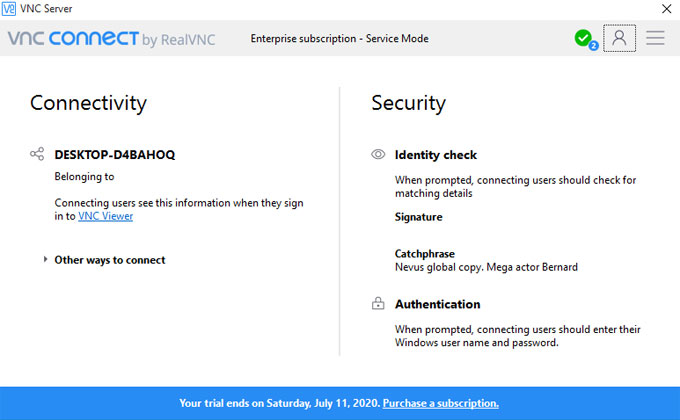
It appears you may be unfamiliar with VPN and how it works. I still need to dial into the VPN, presumably, so there'd need to be a port open somewhere, and that port runs a service, and that service is presumably vulnerable to the same issues the RDP/VNC services are? If I knock on port 3389 or 5900 and attempt to do X
:max_bytes(150000):strip_icc()/win10-realvnc-download-dc5d6331722746b48604ff6e217bbb4d.jpg)

This has fuck-all to do with making sure that only authorized users access the system. It's how you ensure only authorized users gain access.Įncryption prevents someone from hijacking your datastream, man-in-the-middle style. I just wanted someone to answer more than "just because", which has always been my own go-to answer. Note: I'm not asking about whether I should run an ipsec tunnel, or an SSH tunnel, or a VPN, or anything like that: I'm specifically asking whether RDP or VNC is the more secure in an open-port-through-the-firewall scenario.Įdit: I want to thank people for their persistence in answering here, especially when I've appeared to be stubborn.
#WINDOWS 10 REALVNC PLUS#
My thinking is that a lot of the RDP vulnerabilities have been closed off, and using a non-standard port plus NLA should be at least as secure as a similar VNC setup, especially in light of November's round of CVE's for LibVNC? I'm considering setting up VNC, but my question is this: how much more insecure is using a modern implementation of RDP (Windows 10, in my case) vs using a VNC implementation, even a paid one like RealVNC? So I'm currently using Chrome Remote to connect to home, but I'm trying to wean myself off the Google ecosystem slowly.


 0 kommentar(er)
0 kommentar(er)
